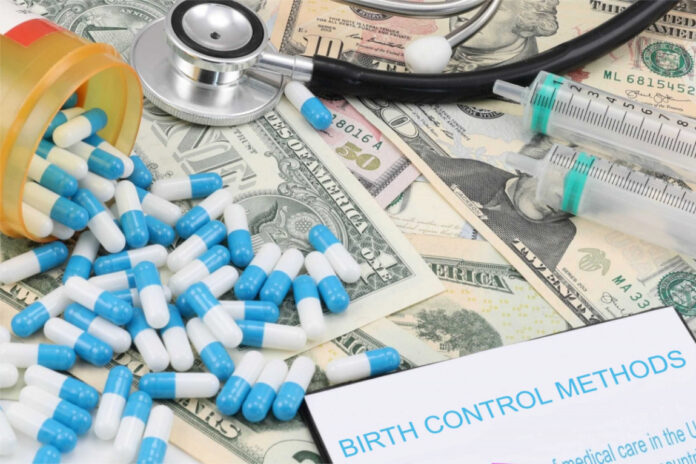A new report from the Stop Stock-outs Project (SSP) has found that contraceptives now represent the biggest share of medicine stockouts. The report emerged from a survey undertaken by SSP in collaboration with the Ritshidze project from April to June 2022. The report forms part of a number of other reports the SSP has done since 2013.
Stock-outs are defined by the World Health Organisation (WHO) as the complete absence of a required medicine for at least one day at a storage or delivery point. However, the SSP has taken the definition further to include a comprehensive definition of a short supply of drugs. Its definition of “stock out” is: when a pharmacy (in a medical store or health facility) temporarily has no medicines on the shelf. It may affect one medicine, or many medicines, or in the worst case, all medicines. A stock out can be documented at one point in time or over a period of days, weeks or months. When there [are] good stock management systems in place, the stock out duration will be minimal or, ideally, never.”
READ MORE:
Contraceptives Shortages Are Devastating Women In KZN
Who worked on the report?
The SSP is a consortium of five civil society organisations Doctors Without Borders (MSF), Rural Doctors Association of South Africa (RuDASA), Rural Health Advocacy Project (RHAP), SECTION27, and the Treatment Action Campaign (TAC). They aim to monitor and report on medicine and vaccine shortages and stockouts at primary healthcare facilities.
The Ritshidze is a project being implemented by organisations representing people living with HIV. It includes several organisations nationally and globally. The project works towards improving the quality of HIV and TB services provided in the public health sector. This is done through a community-led clinic monitoring system which is being rolled out in hundreds of primary healthcare facilities across the country. The full data from the project can be found here.
RELATED:
South Africa: The Reality of Providing Safe Abortion During A National Lockdown
What were the key findings?
The report looked at the fact that there are generally fewer medicine stockouts at public health clinics across South Africa. The report found that the overall medicine stockouts has improved since the project started their surveys. However, the big issue is that contraceptives now represent the biggest share of medicine stockouts.
“With endemic violence against women in South Africa, failure to meet our reproductive health needs is another stressor as women without access to contraception are forced into a position of negotiating condom use, or risk an unplanned pregnancy. For some of the most vulnerable women in our country, this lack of access can be catastrophic,” said Dr Indira Govender of RUDASA.
While 6.9% of patients reported a stockout when at a clinic, 40% of these were stockouts of a contraceptive. Within the contraceptives category, 76.3% of stockouts reported were injectables. However, around 67.6% of facilities reported that patients had not left without medicine. This was because they were given an alternative. However, according to the report, while this is a reasonable response, switching contraceptives can have a detrimental impact on women’s health and life. It is not a long-term solution to stock-outs.
RELATED:
Explained: The Abortion legislation in South Africa
“Women and girls should be able to access their preferred contraceptive at health facilities at all times,” said the report.
How was the survey conducted?
The survey focused on seven provinces. The two provinces that were not surveyed were the Northern Cape and the Western Cape. The clinic monitors from the Ritshidze project surveyed over 15000 public healthcare users and public healthcare providers. This was between April to June 2022. They found that in the over 400 facilities, injectable contraceptives and oral birth control pills were most commonly out of stock at 76.3% and 19.4%, respectively.
The other medicines that were also often out of stock included HIV medication (16% of reported stockouts) and pregnancy tests (10% of reported stockouts).
During previous SSP surveys, they used telephonic methods to conduct the research. However, this time with the addition of the Ritshidze project, they used a different methodology and a different. However, overall the survey demonstrated a significantly improved overall picture of medicine availability in South Africa. Only 7% of patients reported leaving the health facility without their medicine in the past three months due to a stated stockout.
READ MORE:
5 Contraceptives That Are Effective And Affordable
Recommendations
As part of the recommendations of the report, the SSP said the government needs to create a plan to address contraceptive stockouts in primary healthcare facilities. In particular, the report highlights the fact that in a South African context, with high rates of gender-based violence, “we cannot afford a de-prioritisation of women’s sexual reproductive health issues”.
This includes shortening the time for resolution of stock-outs where they occur. They are calling on the government to provide guidelines for how primary healthcare facilities should manage stock-outs, should they occur. Additionally, the SSP are calling on the government to monitor implementation of the National Integrated Sexual and Reproductive Health Rights (SRHR) policy. Most importantly there is the need to ensure that women and girls are able to access their preferred contraceptive.
“Women who take contraception have made a choice not to get pregnant. When supplies are not there, we take away their agency. It’s often risky to change from a long-acting method to a daily method and it can be costly and time consuming to women and girls to ensure future continuous access”, said Lucy O’Connell, a nurse and advisor at the Southern Africa Medical Unit of MSF.
RELATED:
Reproductive Justice: Where Do The ANC, DA, EFF Stand?









